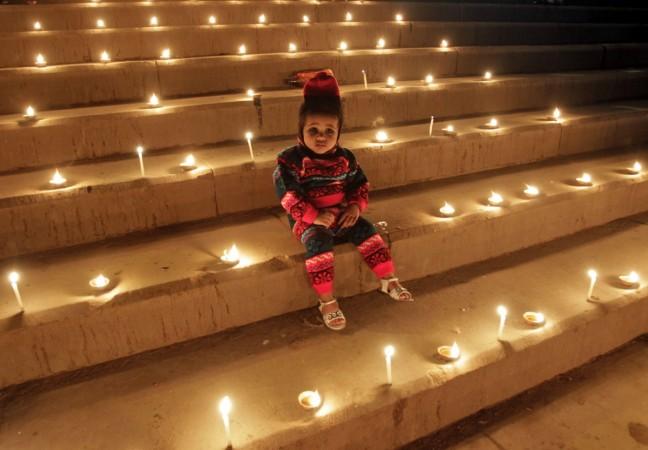
Diwali marks the victory of good over evil and is the most widely celebrated festival in India. Also called the Festival of Lights, Diwali or Deepavali is spread across six days in various parts of the country. This year, the main Diwali festival falls on 23 October.
With the onset of autumn, i.e. between October and November, Hindu communities across the world start preparing for the celebrations with much enthusiasm. Before the beginning of this festival, people clean their homes and decorate it with the ceremonial lighting of earthen lamps or diyas.
Apart from lining up the entire house with beautiful diyas and candles, people burst firecrackers. Worshippers of Lakshmi embellish their houses with lights and flowers, arrange for social events and distribute sweets among friends and family.
Owing to India's cultural diversity, the festival gets a distinct regional touch in different parts of the country.
In north India, people celebrate Diwali to mark the victory of Lord Ram over demon King Ravana and his return to Ayodhya with his wife Sita and brother Lakhsman after 14 years of exile.
Among the Sikhs, the festival of lights hold a special importance. On this day, the sixth Guru Shri Hargobind Singh Ji, who was held captive under Mughal emperor Jahangir, returned to Amritsar.
In the south, the festival is called Deepavali and marks the defeat of demon Narakasura. During Diwali, Lord Vishnu and Goddess Lakshmi are worshipped.
The festival also holds a special importance to farmers across the country. Diwali marks the end of the harvest season, which is why the farmers celebrate it.
Not only in India, but Hindus outside the country too celebrate the Diwali with much fanfare. Nepal, Sri Lanka, Mauritius, Singapore, Malaysia, the Caribbean and Fiji islands are among a few nations that celebrate Diwali.
Here is a brief account of the significance of the six days of Diwali:
The first day is commonly known as the festival of cow and the calf, and is celebrated mostly in Gujarat.
Second day is called Dhanteras. For several Hindus, the festival begins with Dhanteras. The word Dhan means money and Teras means 13th. Dhanteras is celebrated on the 13th day of the Hindu calendar Ashvin. On this day, people worship goddess Lakshmi.
Third day is called Choti Diwali. The 14th day of the Hindu calendar is called Kali chaudas in north and on this day, people take bath and massage their bodies with scented oils. In south it is called as Naraka Chaturdashi, the day the wicked demon Narakasura was killed.
Fourth day is the main day -- Lakhsmi Puja -- and is celebrated throughout India. Lakshmi Puja falls on the 15th day i.e. on full Moon. On this day Goddess Lakshmi and the broom are worshipped. Broom is also worshipped because it helps keep the house clean.
On the fifth day Padwa and Govardhan Puju take place in country, while for several people it marks the start of the New Year, especially in Gujarat.
Bhai Duj is celebrated on the sixth day. It also marks the end of the six-day long Diwali festival in India. On Bhai Duj, sisters pray for their brother's happy lives.












